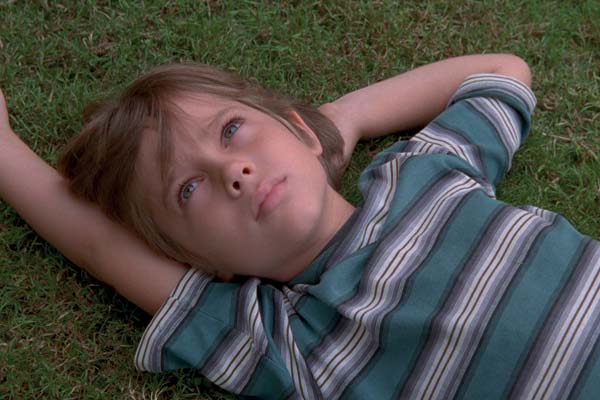Richard Linklater is one of those writer/director types that turns everything he touches into silver screen gold.
His latest – in a long list that includes 'Dazed And Confused', 'Slacker', 'A Scanner Darkly', 'Waking Life' and 'School Of Rock' – is a 12-year project that takes a one-of-a-kind trip through the uncomfortable and misunderstood times we all experienced as an innocent and ignorant child that grows into an oblivious and arrogant high-school punk. All while trying to keep our feet on the ground and figure out just what we are doing and where we are going, 'Boyhood' makes you realise that adolescence is (was) merely the beginning, not the end.
Aptly titled, 'Boyhood' – Linklater’s 17th film as a director and 12th as a writer – is as much as an exploration through the murky unmapped waters of adolescence as it is an adventure. The loosely based narrative follows Mason (played by Ellar Coltrane) from a curious and imaginative six-year-old through the rebellion of being a teenager, right up to the unexpected turmoil of early adulthood and shows us that whether good, bad, indifferent or completely forgettable, our boyhood (so to speak) is as much a part of our life and our continuing narrative as our adulthood.
Whether you are drawn into this two-and-a-half hour film as an active participant, an armchair mother or just as a fly-on-the-wall observer, you can’t help but escape the ‘normal movie going experience’ and transcend into a timeline of life and all the major (and not so major) moments that come together to give more and more context to an unfinished story, like the very passage of time itself and the seismic shifts in modern family values and development.
Aside from Linklater’s trademark style of minimalistic narrative, he also cast the same actors to play the same roles for the entire 12 years; drawing us closer to Mason, his personal development, his family relationships and allowing us to feel and relate something that rarely happens in normal movie going experiences. 'Boyhood' – like many of Linklater’s previous films – has reorganised the conventions of how we view and write films, especially in terms of writing, casting, narrative and plot structure, and instead utilised real time and real character growth to underpin the main themes that naturally and organically gnaw away at our hearts from the inside.
Instead of hindering the film, the absence of a traditional three-act structured narrative does the opposite, as the moments in Mason’s timeline that Linklater portrays eventually all point to the plot (or lack thereof) which us that all of lifes moments – whether big or small, forgettable or unforgettable – pass us by too quickly, and when we look back in time it seems that just yesterday we were six-years-old being woken up by our sister singing Brittany Spears and that our whole adolescence, or entire boyhood went far too quickly.
Told using a distinct style and an original voice, 'Boyhood' uses music, age-specific haircuts and fashions to transport us and cement the narrative to different timeframes, adding more authenticity to the film and breaking down the fourth wall. The difficult trials and tribulations that come with growing up in a contemporary family environment are real and even though you know everyone is acting, it feels real. Everything from Mason’s first kegger, his first car, his first camera, his first sex talk, his first broken home and his first taste of the mind-expanding bliss of psychedelia.
Starring Ethan Hawke as Mason’s estranged and absent musician father (who does a lot of growing up himself) and Patricia Arquette as his super cool mum – who is doing her best to hold down child-parent relationships and maintain a healthy family structure – the support cast in the film (also staring Linklater’s daughter as Mason’s sister) add the missing pieces that Linklater has chosen to leave out of the narrative.
All in all, everything is captured; whether we see it as important or not is beside the point. It’s the ebb and flow of the big and the little – the momentous and the (assumed) insignificant – that makes 'Boyhood' such a tender and personal film. It is a poignant and creative experiment that is at the top of Linklater’s accomplishments (second maybe only to 'Waking Life') and should be a welcome addition to contemporary film culture. It's an instantly iconic indie cult classic that is so much more than just a film that takes you on a journey.
– written by Benjamin Pratt

